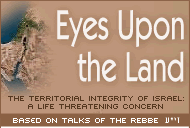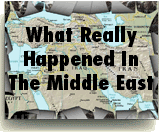Thoughts about changing technology and how it affects the public need for and access of public records and the relationship to identity theft.
Does new technology which enhances access to information pose an inherent danger to the privacy rights of individuals? Does ease of access to information increase the number of identity theft victims? Are more people likely to fall victim to information based frauds because of the World Wide Web?
These questions on the surface require an analysis between two ideas which have been in conflict since mankind has sought to build a better mouse trap. The essence of the dispute can be explained with the following debate question: do new technologies which change an existing process so much that even though all agree the process is vital, the new process brings with it costs that were not conceived of when the previous process existed. At such time, should the process be banned or changed into something else?
In English, what do I mean? Virginia, resident, Betty "B.J." Ostergren , runs a website named The Virginia Watchdog whose mission is to expose public records of public officials found online in order to bring attention to her supposition that the availability of electronic public records is a cause of identity theft. Ms. Ostergren contends that public records should only be available at a clerk’s office. So the question becomes, is there a fundamental difference in the nature of safety for consumers between access of public records which might contain personal identifying information electronically, online vs. electronically or by hand in a clerk’s office? With no dis-respect to Ms. Ostergren, I want to look at the question from a different perspective. Can’t identity theft occur under either scenario? (Note that data shows that most identity theft results in old fashioned theft of information by hand not by computer)
New technologies or new ways to do things have always come with new or shifting perceived costs and benefits. It is safe to say that before the introduction of automobiles, the frequency of significant traffic accidents where people were left with life-long injuries often resulting in costly court trials to determine who is liable for the costs of the disability was insignificant compared to today. Okay, horses occasionally threw riders and could damage someone else’s property or even another horse. But when automobiles came along, land speed increased and new dangers quickly became apparent. What did we, as a society gain with automobiles? For a start, quicker access to emergency medical care, ability to be mobile to visit family, to move out of crowded living environments, to travel to places we would never have scene otherwise and plenty more. Both new benefits and costs followed the mass introduction of the automobile. New businesses creating good wage jobs supporting the automobile also arose. And, along with the automobile came the shift from urban horse by-products to urban air and noise pollution.
Which was worse? It depends. Streets perceived as already crowded, and designed for slow horse traffic quickly became insufficient. Imagine driving in the middle of a city without traffic control. But it wasn’t necessarily the automobile itself which resulted in the negatives or the positives but how it came to be used and how society learned to manage the new challenges posed by automobiles. Yes, criminals too learned how to use a getaway car. But, police also learned how to use sirens and lights. So did ambulances and fire trucks. Did people learn to drive recklessly? You bet. Was law written to address reckless driving? Yes. Does the law deter reckless driving? Sometimes it does, and sometimes it does not.
Let us apply the lesson to identity theft. What causes identity theft? Is it easy access to personal information or a realization that most identity thieves are never caught or prosecuted? Maybe it’s some of both. But if identity theft were not so easy to commit and the perceived cost of perpetrating it so low, no matter how much personal information were to be accessible, the crime would not be amongst the biggest of consumer fears and result in losses to the US economy of $50 billion annually.
Is it a moral crisis that leads perpetrators to steal identities from other consumers or is the business of identity theft just too profitable to resist? Is the threat posed by possible prosecution for the commission of the crime too unconvincing? Does the perceived benefit or profit of committing identity based crimes exceed the perceived costs of apprehension and prosecution? These are questions which merely reflect upon the debate question above, a question which has arisen in every generation and with every new idea or new technology which opens the door for those who wish to exploit it for bad instead of good. Those who defend society from those whose intent is to exploit the situation for criminal means must decide between spending limited resources on either or both deterrence and remediation. Is the situation different with technology and identity based crimes than any other societal challenge previously faced?
interesting related read























































